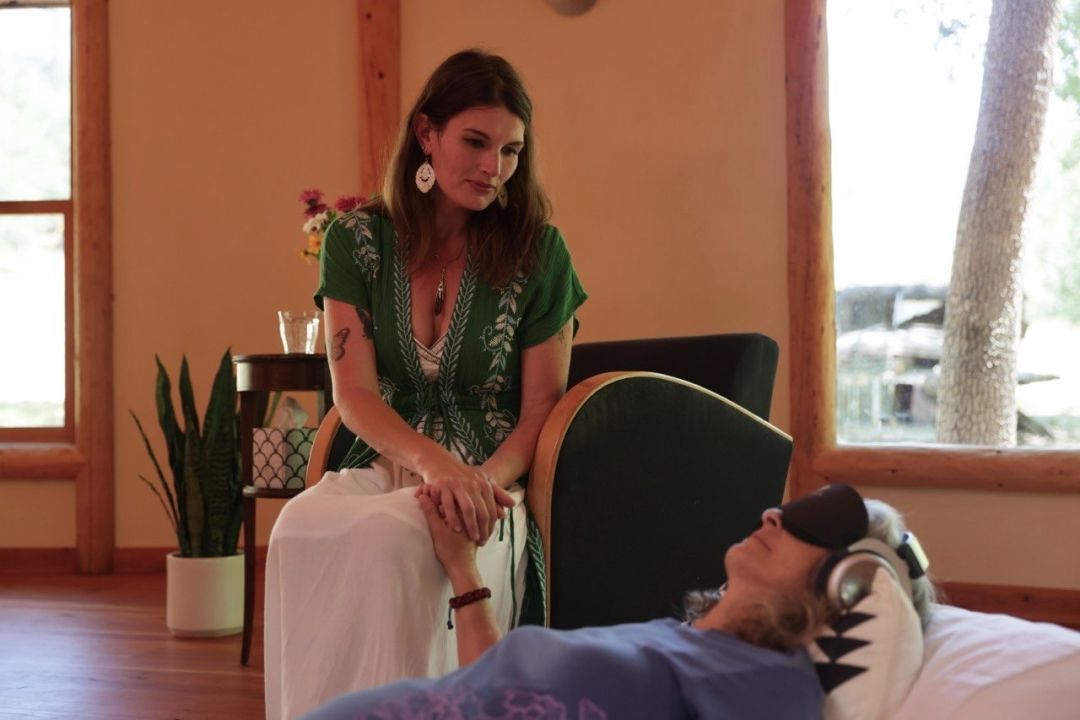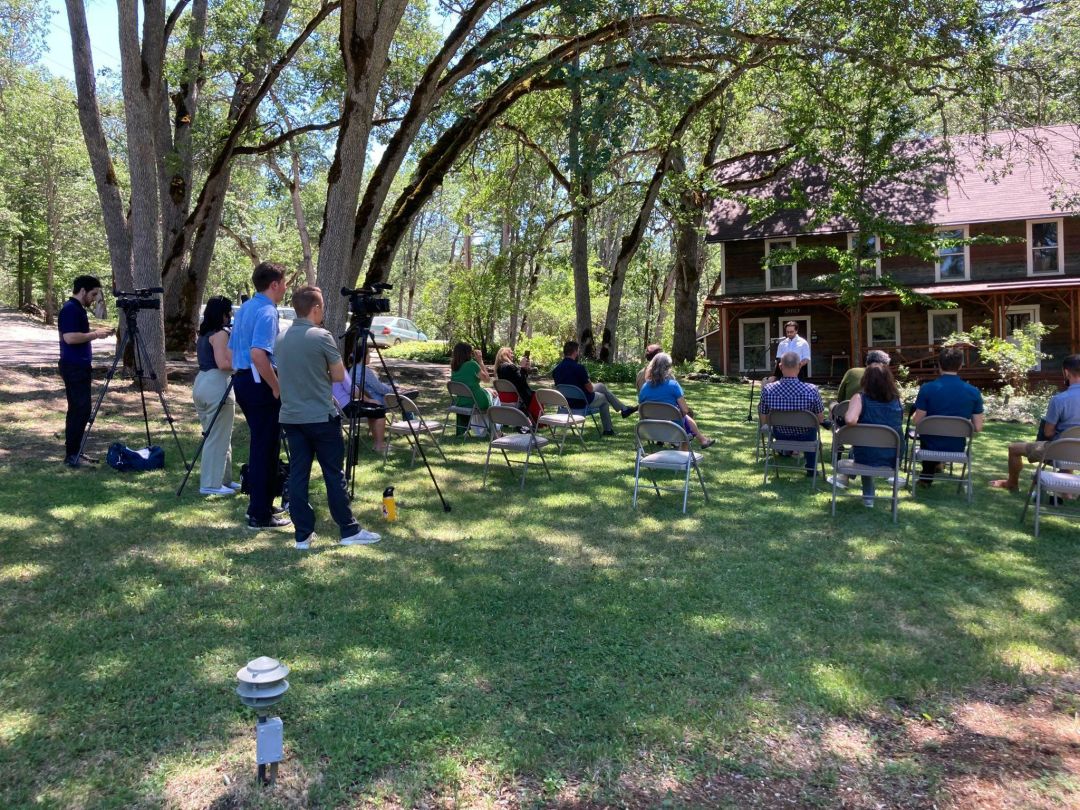Psychedelic Mushrooms Will Be Going Back to Some Oregon Ballots this November

A demo psilocybin therapy session at Buckhorn Springs Resort
Image: Rory Finney
Two years ago, Oregon became the first state in the country to approve psilocybin use in licensed facilities under Measure 109.
Now, though, a majority of Oregon’s counties are pushing back.
Twenty four of the state’s 36 counties will have measures on the ballot this November asking voters to reconsider, and more could join them before the filing deadline on August 19.
Measure 109 allows counties to adopt ordinances that prohibit psilocybin service centers and manufacturers from operating in their local jurisdictions. Some counties, including Clatsop, Hubbard and Clackamas, have voted for a temporary, two-year opt-out option, while others are asking voters to weigh in on a permanent ban.
Also called magic mushrooms or shrooms, the psychoactive compound found in psilocybin is said to help treat a number of disorders, such as depression, and PTSD. Though it was banned by federal law in 1971, it was more recently designated a breakthrough therapy by the FDA. But not everyone is convinced.
In the Portland metro area, Multnomah and Washington County will not be sending the measure back to voters in November. But Clackamas County will be putting a temporary, two-year-opt out measure back on the ballot—despite the county voting 52.4 percent in favor of the measure in 2020. Commissioners around the state say they’re hesitant to approve another controlled substance due to a number of illegal pot farms in Oregon that popped up even after recreational cannabis was legalized. Some are also leery of uncertainty created by as-yet-incomplete guidance from the Oregon Health Authority, which has until December 31 to adopt official guidance, according to the Measure 109 statute.
“I have a lot of angst about approving something that we don’t know what the rules are. I feel like our hands are tied,” said Clackamas County Chair Tootie Smith during a July 14 council meeting. “It is just not, I don’t think, good public policy to go ahead and approve for the vast majority of the county [with] over 400,000 population, of which a small percentage may partake of this before we know what’s really going on.”
The bans would only affect unincorporated communities. Local city councils can vote against measures aimed at banning magic mushrooms. For instance, Ashland has just voted in favor of psilocybin treatment within city limits.
“We are concerned about client access. If the only space that this is going to be allowed is in a concentrated area [like Portland or Eugene], we’re worried about those folks who might benefit from psilocybin services that live in areas that’ll make it very difficult for them to travel and access them,” says Angela Albee, manager of the Oregon Psilocybin Services Section at OHA.
Further south, Jackson County plans to have voters consider a permanent psilocybin ban, which complicates matters for a handful of businesses who were planning to open service centers in unincorporated communities in the Ashland area.
"I do have concerns. We are a little bit head shy about time, place, and manner and what happens in unincorporated areas, because of what happened with marijuana," Jackson County Commissioner Colleen Roberts said in the Commission's July 27 meeting.
For Myles Katz of Synthesis Institute, a company based in the Netherlands, Jackson County’s decision is a curveball. Katz, who had moved from Amsterdam to Oregon after Measure 109 was passed, last year purchased the Buckhorn Springs Resort—located in an unincorporated area just southeast of Ashland—after falling in love with the property. The historic resort was once a healing destination for native tribes due to its mineral springs, and in later years operated as a hydrotherapy retreat in the 1950s. Katz intended to turn it into a psilocybin service center and retreat. Katz, who said that the property can still be used as a licensing center regardless of the voter turnout, remains positive. “Given that the measure did pass in Jackson County in 2020, I think a lot of us are optimistic that it will pass again,” he says. “It’s actually brought the community of Jackson County’s psilocybin practitioners, facilitators, and everyone together in a way that otherwise wouldn’t have happened. So now we have this community of people who really want to see this be successful.”

A private forum at Buckhorn Springs Resort
Image: Rory Finney
Another business owner in Jackson County who has been affected by the pushback is Rose Moulin-Franco, owner of Nexus Center for Consciousness. She was about to buy property in unincorporated Jackson County when she heard that the county commissioners might be sending the measure back to the ballot.
“I just had to pull out of a deal,” she says. “Everybody that was in a position of moving towards securing a property has had to stop until we can get more information and figure out, you know, the lay of the land. I have to say it is a little surprising that representatives of people who voted in favor [of Measure 109] would try to get them to vote now to opt out. It just doesn’t seem like a good use of government resources. Their time would be better spent focusing on their responsibility under the law, which is to help us establish reasonable and effective time, place, and manner rules at the local level.”
Like Katz, Moulin-Franco remains optimistic that Jackson County voters will once again approve the measure in November. “We have a great deal of information to share with the public between now and November, right? So, I see it as a period of time when we can work on those things, and feel pretty confident that these counties are not going to vote to opt out.”




